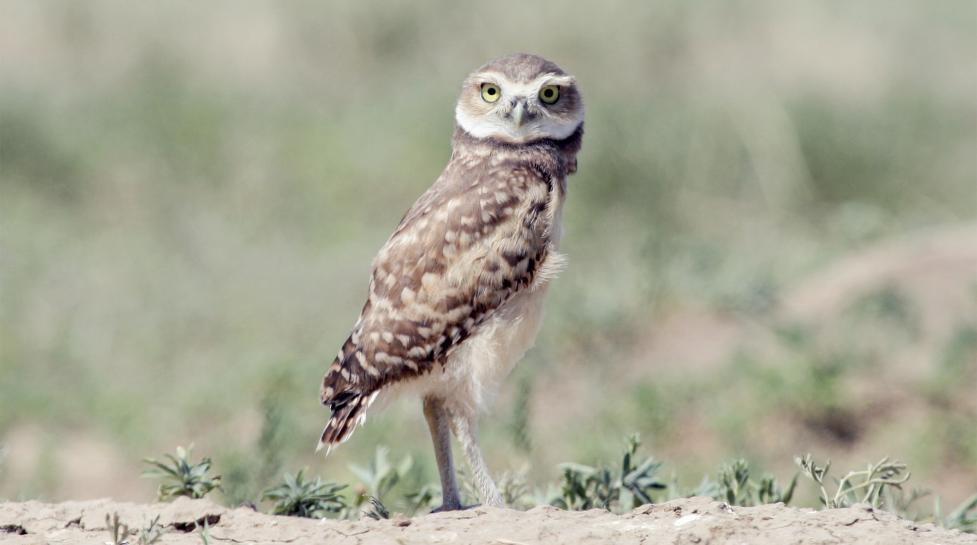Seasonal wildlife closures play an important role in helping many wildlife species – such as peregrine falcons – to reproduce and raise their young.
City of Boulder Open Space and Mountain Parks (OSMP) and Parks and Recreation (BPR) will institute several seasonal closures in 2024 to help protect sensitive wildlife habitats across the city’s open space systems. Wildlife closures have played an important role in helping many wildlife species– such as peregrine falcons – to reproduce and raise their young. View an interactive map showing current seasonal closures.
OSMP and BPR staff and volunteers regularly monitor wildlife closures, and the departments will lift raptor closures if nesting activity is not observed. All designated trails around these closures will remain open. In 2024, the City of Boulder will institute these seasonal wildlife closures:
- Cliff-Nesting Raptor Closures Feb. 1 - July 31 (Falcons) and Dec. 15 - July 31 (Golden Eagles): City open space protects habitats, including areas on the Flatirons, for nesting peregrine and prairie falcons. Recently, the city implemented extended closures to help protect golden eagles.
- Burrowing Owls, March 15 - Oct. 31: Burrowing owls are found in city open space grassland areas and depend on prairie dog burrows for their habitat. They are considered a species of greatest conservation need by Colorado Parks and Wildlife.
- Osprey, Northern Harrier & American Bittern, March 15 - Sept 10: Osprey, Northern Harrier and American Bittern are found across city public lands managed by the city's Parks and Recreation and Open Space and Mountain Parks.
- Bats, April 1 - Sept. 1: City Flatiron and cliff formations are home for Fringed Myotis and Townsend’s Big-eared bats, both considered species of greatest conservation need by the state. These closures allow bats to raise their young with minimal disturbances. Seasonal closures protect habitat surrounding permanent closures, enacted to reduce the chance of people introducing White-Nose Syndrome, a devastating disease that can decrease bat populations.
- Grassland Ground Nesting Birds, May 1 - July 31: Grassland breeding birds have seen widespread and precipitous declines across North America. OSMP provides habitat for several species of grassland nesting birds, including the Grasshopper Sparrow, Western Meadowlark, Vesper Sparrow, Horned Lark, Lark Sparrow, and Savannah Sparrow.
- Bald Eagles. Nov. 1 - July 31: These areas are closed to help protect habitat for two pairs of nesting bald eagles and to help them raise their young. Bald eagles are federally protected by The Bald and Golden Eagle Protection Act.
City of Boulder Open Space and Mountain Parks (OSMP) also maintains closure areas along South Boulder Creek to help stem the spread of New Zealand mudsnails. These highly invasive aquatic species reproduce rapidly and can displace native insects that fish rely upon for food, impacting fish populations and the animals that feed on them.
OSMP and Urban Park Rangers also patrol seasonal closures regularly and visitors who enter those areas may receive a fine. OSMP and BPR remind visitors to always recreate responsibly on shared public lands and stay on designated, maintained trails outside of seasonal wildlife closure areas.
